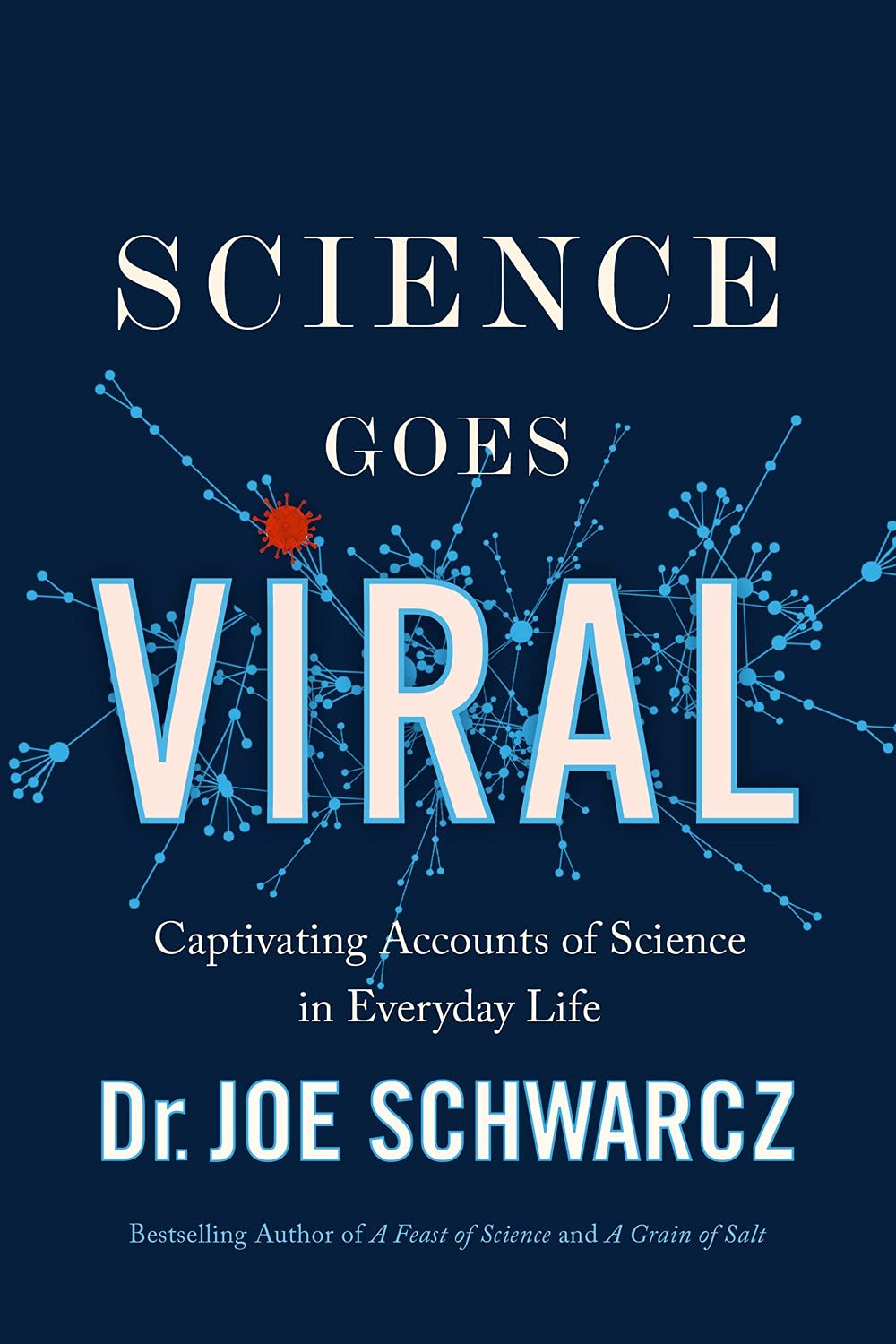
Joe Schwarcz’s prolific output continues. His latest book is Science Goes Viral. It’s not actually out yet (I read an advance copy) but can be pre-ordered on the Amazon website. As usual, it offers a cornucopia of riches: fascinating short vignettes featuring chemistry, history, and pseudoscientific claims. It’s not only informative but highly entertaining thanks to his colorful language and sense of humor.
He begins with a discussion of two plagues that threaten to unravel the fabric of our lives: COVID-19 and racism. He is well qualified to address racism, being the son of a Holocaust survivor and having lost many relatives in Nazi concentration camps, including all four grandparents.
The first 66 pages are a masterful explanation of the science behind COVID-19 and vaccines. I thought I was well-informed, but I learned a few things I didn’t know. I was amused by his account of public health measures that sounded like a response to COVID-19 or the 1918 flu epidemic but were actually implemented to combat a 1916 outbreak of polio in New York.
Remember the toilet paper shortage? Have you ever wondered what people did to clean their bottoms before toilet paper was invented? Wonder no more! Schwarcz provides a fascinating account of the various ways people managed anal hygiene in the days before TP.
In discussing masks and aerosols, he reminds us that science has calculated that every breath we take will contain some molecules that were once exhaled by Albert Einstein and by Napoleon… and will contain molecules from the aroma of a steak cooked by Julia Child (yum!) and from the sweat of Donald Trump (Eew! Sweat!).
He covers the harms of vaccine misinformation. In Iran, people died from methanol poisoning because they had heard alcohol would protect them from infection. Sarah Myhill, a doctor in Wales, has been telling people to combat infections with vitamin C, iodine, and a “salt pipe”. Not only useless, but harmful, as the doses of vitamin C she recommends are toxic. A study of eleven male volunteers found that their levels of killer cells increased after masturbation. Probably not significant, but then it can be argued that “you are your safest sex partner”.
I was intrigued to learn that Robert Louis Stevenson’s story about Dr. Jekyll and Mr. Hyde was based on a real person Stevenson knew: a respected and likeable medical doctor who was hanged for murdering his wife. Stevenson couldn’t believe such a good person could do such an evil thing.
Schwarcz reminds us that there are no good chemicals or bad chemicals, just proper and improper ways of using them, as a Louisiana woman learned to her dismay when she tried to use Gorilla Glue as a hair spray!
Prepare to have your beliefs challenged. What have you heard about red M&Ms? Have you heard warnings about BPA? Scwarcz sets the record straight about BPAs, thermal cash register receipts, food dyes, and omega-3s. He explains why recycling may not be such a good idea. Are plants in hospital rooms good or bad for patients? Do anti-aging remedies work? What about vaping? What’s behind the kambo craze where people are injected with frog poison? Does water fluoridation reduce IQ? What about aromatherapy? Are any of the claims for essential oils supported by science?
He describes how clever scientists figured out the role of lice in typhus infections and learned that lead was toxic. He eviscerates the myth that natural compounds are somehow better than the same compounds produced synthetically in a lab.
Some of the other subjects he addresses: boosting immunity (the only effective way to do that is vaccination), ginger ale, Plexiglas, intermittent fasting, burgers from plants, polystyrene, insects as food, animal experiments (“mice lie and monkeys exaggerate”), and much, much more.
Conclusion: Highly recommended
This book is well worth the price: the Kindle edition is only $10.99. It is full of interesting information solidly based in science. If you read it, you will learn. You will laugh. You will be smarter. You will do better in trivia contests.

